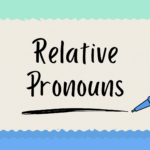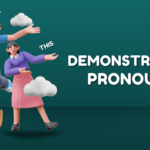Language is like a fascinating puzzle, always changing to help us express our thoughts and ask questions. Pronouns, those handy word substitutes for nouns, play a big part in this language game. Among them, we have interrogative pronouns, the words that make asking questions a breeze. Let’s take a deep dive into what they are, how we use them, and see examples that make it all clear.
What Are Interrogative Pronouns?
Question words like who, whom, what, which, and whose help us ask different things. Who is for people (“Who won?”), whom is for serious stuff (“Whom should I write to?”), and what, which, and whose are for other questions, making language like a fun puzzle!
What are The Types of Interrogative Pronouns?
There are five main ones:
Who: Use it when asking about people.
Whom: Also for asking about people, especially in fancier talks.
What: Covers a lot – things, ideas, actions, you name it.
Which: Helps when you have choices to pick from.
Whose: Figures out who owns or has something.
How to Use Interrogative Pronouns?
Let’s see how each one works:
1. Who/Whom
- Who is like a detective asking about the subject, as in “Who is coming to the party?”
- Whom is for more serious talks, especially when you’re asking about the object, like “Whom did you invite to the event?”
2. What
- What is your go-to for asking about things, actions, or ideas, like “What is the purpose of this meeting?”
- You can also use it to get more details, such as “What do you mean by that?”
3. Which
- Which is your buddy when you have choices, like “Which book would you like to read?”
- It also helps you pick out one thing from a group, as in “Which color do you prefer?”
4. Whose
- Whose is all about ownership, asking questions like “Whose car is parked outside?”
- You can also use it to find out where something comes from, like “Whose idea was it to start this project?”
Examples in Sentences:
Here are some examples discussed in table for better understanding:
| Question | Interrogative Pronoun | Example |
|---|---|---|
| Who | Who | Who won the Nobel Prize in Literature this year? |
| Whom | Whom | To whom should I address the letter of recommendation? |
| What | What | What is the capital of Australia? |
| Which | Which | Which movie do you want to watch tonight? |
| Whose | Whose | Whose laptop is this in the conference room? |
Interrogative Pronoun VS. Interrogative Adverbs
Interrogative adverbs, on the other hand, are all about seeking more information about the action or circumstances. They modify verbs, adjectives, or other adverbs:
| Adverb | Purpose | Example |
|---|---|---|
| When | Asking about time | When will the meeting start? |
| Where | Asking about place or location | Where did you find the keys? |
| Why | Asking about reason or cause | Why are you upset? |
| How | Asking about manner or method | How did you solve the problem? |
What are The Key Differences?
Function in a Sentence:
- Interrogative pronouns replace nouns in a question, either as the subject or object.
- Interrogative adverbs modify verbs, adjectives, or other adverbs, providing more details about the action or circumstances.
Examples in Questions:
- Interrogative pronouns directly stand in for the unknown information, such as the person, thing, or idea you’re asking about.
- Interrogative adverbs focus on how the action happened, where it occurred, why it took place, or when it happened.
Table for Better Understanding:
| Category | Interrogative Pronouns | Interrogative Adverbs |
|---|---|---|
| Purpose | Substitute for nouns in questions | Provide more details about actions or circumstances |
| Examples | Who, Whom, What, Which, Whose | When, Where, Why, How |
| Function | Replace and inquire about people, things, or ideas | Modify verbs, adjectives, or other adverbs for additional information |
| Scope | Broader, covering various inquiries | More specific, focusing on time, place, reason, or manner |
Conclusion:
In a conclusion, interrogative pronouns help us ask questions and discover more about the world around us. By understanding who, whom, what, which, and whose, you’re equipped to navigate the world of questions. The examples and tables are your guides, making sure you grasp these important parts of our language.


